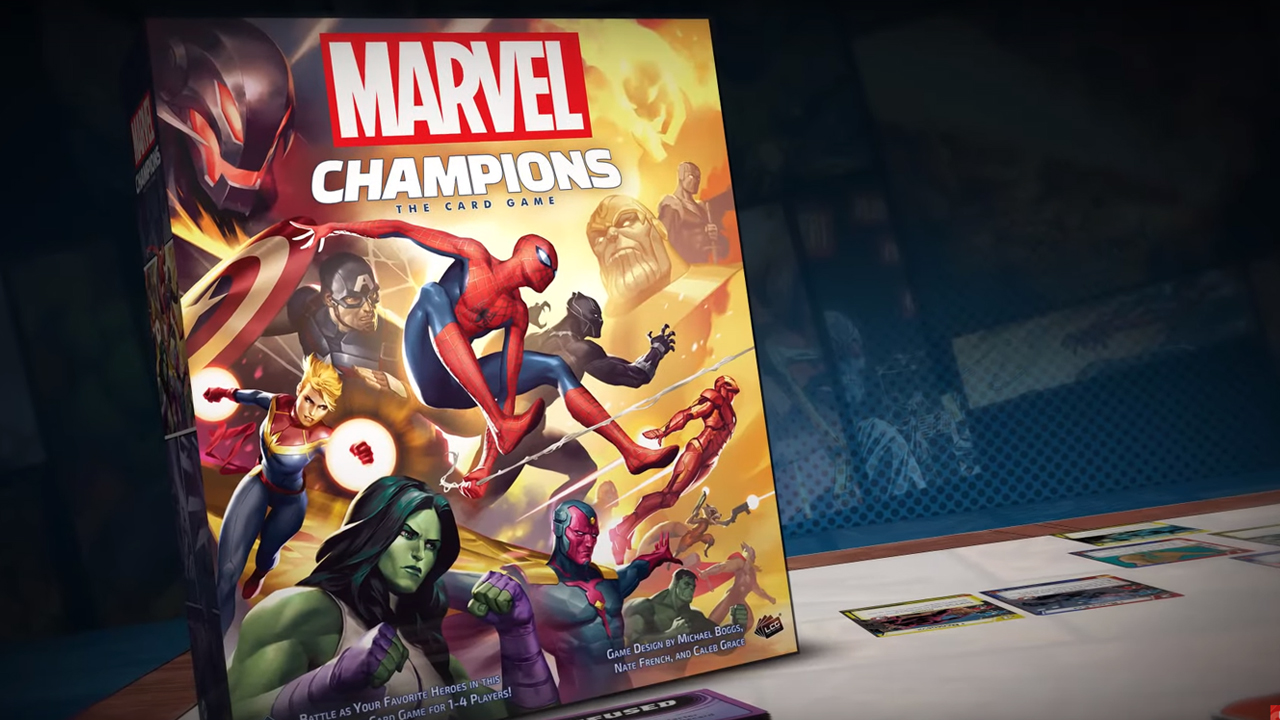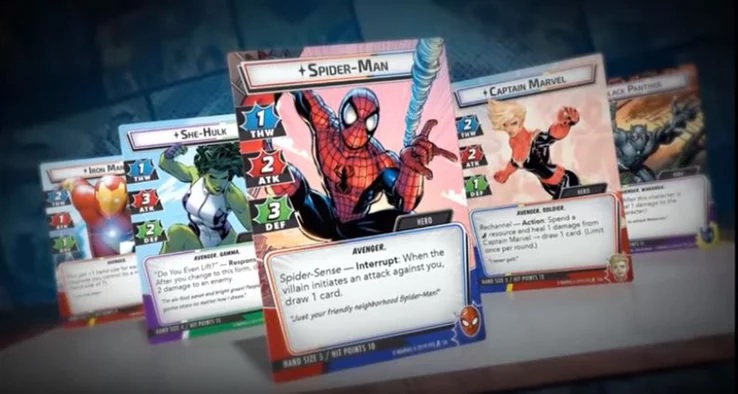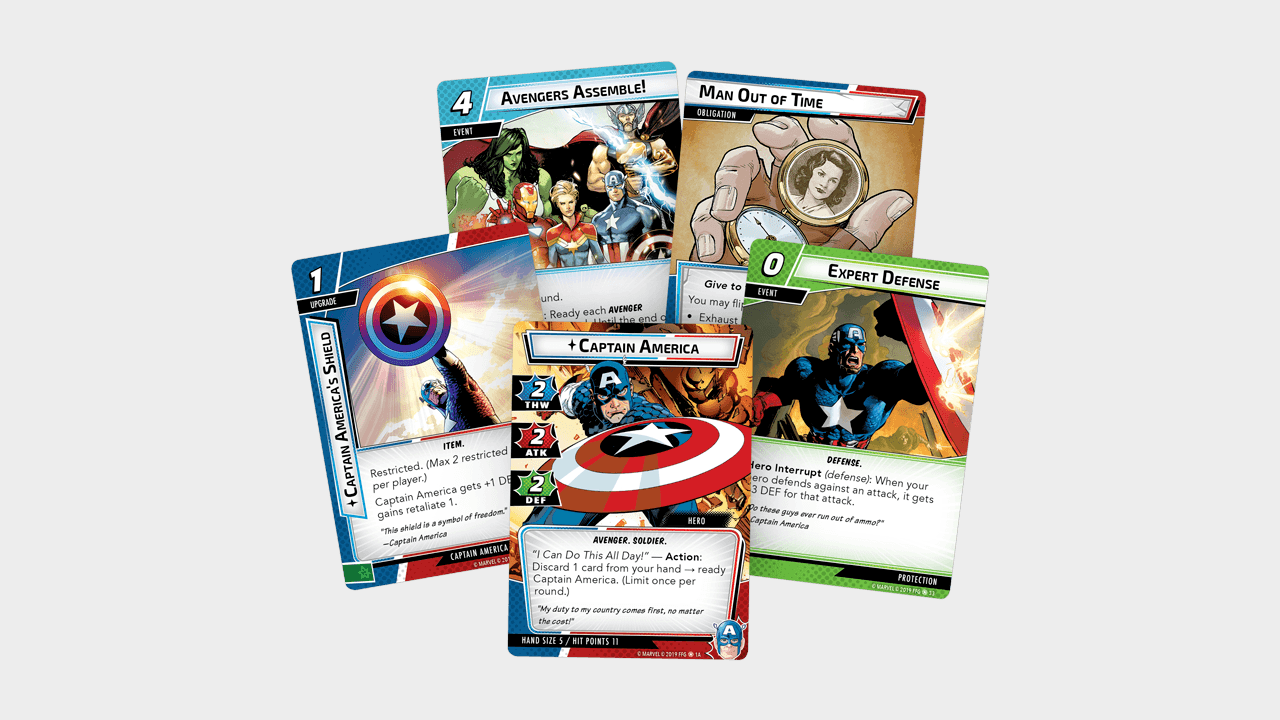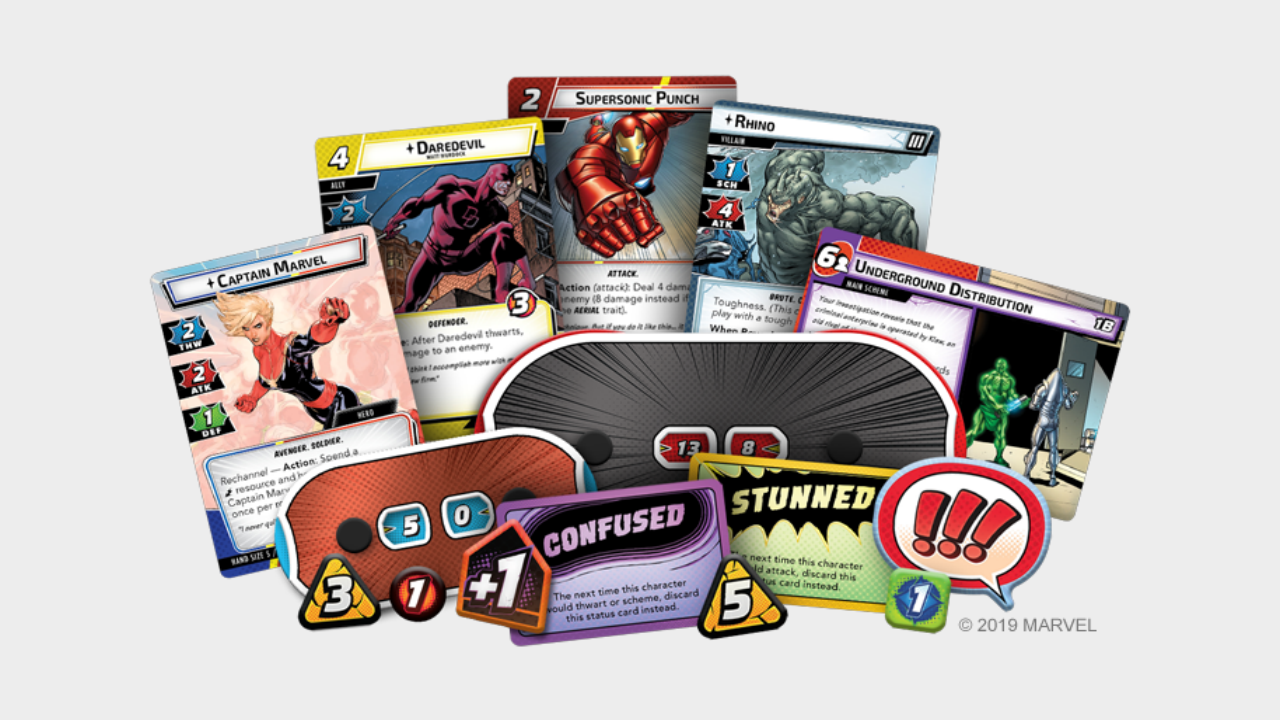Why you should play… Marvel Champions: The Card Game
Suit up as your favourite superheroes in Marvel Champions: The Card Game, and play like you're the strongest Avenger (whoever that is)


Players: 2-4
Time to play: 120 mins
Set-up time: 5 mins
Complexity: Moderate
Avg. price: $60/£60
Films, TV, video games. The unstoppable Marvel behemoth has infested – and conquered – almost every entertainment medium by this point, rendering it only a matter of time before Earth’s mightiest heroes were featured in their own legit deck-building board game. Marvel Champions: The Card Game by Fantasy Flight recently arrived to plug this gap, seeing you and up to three friends thwart the schemes of several conniving comic book villains. Overall, it’s an incredibly fun time, one that cleverly translates the abilities of Marvel’s biggest icons into the tabletop format, and makes a play as one of the best card games of 2019.
The aim of the game is to get your villain’s HP to zero before he can either destroy you or accumulate enough points to advance his scheme. Only through smart card actions can you prevent this from happening, working your super-powered deck consisting of ally, upgrade and supports cards, which each tout different effects, against them. Marvel Champions actually has three possible villains to take on in this starter set: Rhino, Klaw and Ultron. All three advance in difficulty in this exact ascending order.
Heroes and Villains
The first thing Marvel Champions gets right is recognising that the person behind the mask has just as much value as their superhero identity. You see, while each game begins by having you choose between your line-up out of Spider-Man, Captain Marvel, Black Panther, She-Hulk and Captain America, it’s their civilian form that always kicks off proceedings. Spider-Man’s core ability, for example, might let him interrupt villain attacks at crucial moments, but only as Peter Parker does he gain an additional resource – useful for deploying more cards during the initial hero’s phase.

The flow of the game is dictated by both the hero phase and villain phase constantly alternating. The former is where your team has free reign to lay down attacks as a hero or plan accordingly in alter ego form. It’s here where you want to do as much as possible to minimise the number of rounds your villain will have, as otherwise the destruction they can cause during their own phase is twofold. A villain’s first round of attacks has them deal damage to heroes or accrue scheme for every player healing up as their alter ego. Once done, your villain will then draw cards from his own deck that present more obstacles for you to contend with.
I’ll admit that the basic rhythm of Marvel Champions takes a few rounds to get into, especially for those new to deck-building tabletop games, but eventually the purpose behind each hero’s actions sinks in. And of course, the beauty of a board game like this that emphasises co-operation rather than working against each other, is that you can freely communicate with everyone else around the table. You and your team are encouraged to make certain decisions that will complement the strategies of others and set cards in place accordingly.
Expanding universe
Fantasy Flight has already outlined its future plans to introduce new heroes to play as and more scenarios to battle against, but for now there’s variety enough to Marvel Champions that it’d be incredibly tough to get bored. As mentioned earlier, Rhino, Klaw and Ultron are your three starter villains, and each boast multiple stages to fight through, depending on how much time you’ve set aside to play. Plus, enough characters like Jessica Jones and Daredevil appear regularly throughout rounds as ally cards, working nicely alongside the main player heroes.

In the end, it’s hard to imagine a tabletop game of this style working better than Marvel Champions: The Card Game. The roster of player characters has a nice mix of the obvious and the obscure (I’m looking at you She-Hulk), the level of strategy required is deep without ever feeling overwhelming, and all the power sets featured have been successfully translated smartly. It’s perfectly primed to make a true believer out of any Marvel fan craving a solid card game adaptation.
If you're looking for more, check out our guide to the best board games of 2019, or look back at our features on the Jaws board game or the Pandemic board game.
Weekly digests, tales from the communities you love, and more
Aaron is a freelance writer who appreciates a good video game story just as much as great visuals and gameplay. Having covered the subject for places like WIRED, Den of Geek, PLAY Magazine, NME, PC Gamer and more, he’s well equipped to discuss a range of topics and industry goings-on through in-depth features, developer interviews and thoughtful reviews. His favourite game ever is 2005’s TimeSplitters: Future Perfect, a madcap character shooter from the makers of GoldenEye 007 that he first played whilst on holiday in Butlin’s Minehead. Because who needs to have fun in the sun, anyway?



